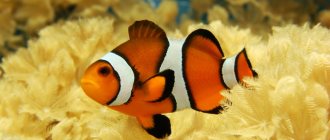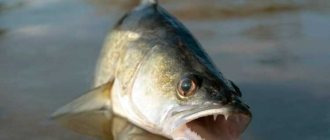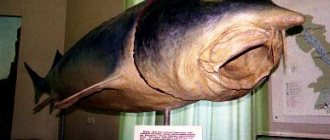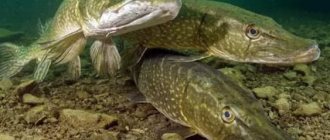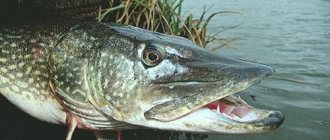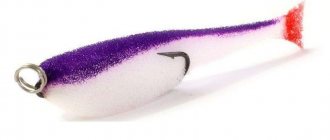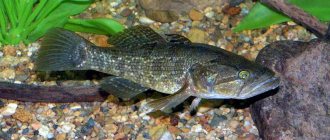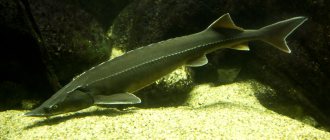Why the myth of short memory stuck specifically to fish is unknown. However, the ability of aquatic inhabitants to remember and memorize concerns not only their owners, but also scientists. Today, the expression “memory like a fish” can be safely refuted. Owners, bright minds, and even fishermen boldly come to the defense of fin owners. What does the fish remember?
Scientists and fish lovers have long been debating the memory of these creatures.
Why does a fish need memory?
The life of a free fish is dynamic and unpredictable. Today she is looking for food, and tomorrow she is fleeing from a hungry predator. Their aquarium counterparts lead a more passive lifestyle. It was they who became the heroes of the myth about the short memory of fish. But are their thinking abilities really that weak?
First, it's important to note that fish have virtually nothing to remember. For domestic gourami, food falls from the sky, and living conditions change extremely rarely.
Secondly, no matter how hard the fish tries to keep important facts about its life in its head, the owner will still not be able to find out about them. While the memory of a dog or cat can be easily tested, such experiments are difficult to conduct with a fish.
It is quite difficult to test the presence of memory in fish experimentally.
How and what do fish remember?
Memory is formed by the experience of a fish and develops throughout life. The older the individual, the more data its memory stores, and the more difficult it is to catch it.
Pisces are able to remember the following:
- feeding and sleeping areas;
- wintering area;
- dangerous areas;
- speed and direction of current;
- fishing lures;
- river water temperature;
- Seasons;
- routes;
- relatives and enemies.
The work of fish memory is based on associative images that are stored in the brain and subsequently reproduced. Representatives of underwater fauna have both short-term and long-term memory. The first type is based on the habits of the inhabitants of reservoirs, the second - on memories.
River
An experiment conducted on carp showed that they remember their relatives and coexist closely with them. They gather in groups of 2-3 to several dozen individuals. The age of the fish in the group varies, which indicates their ability to live in families. In such groups, carp feed, move around the pond and sleep. During life, small cells are formed from a large cell, which can subsequently unite.
Every family has an older fish whose behavior is particularly cautious. With experience, she learns to distinguish natural food from fishing baits and passes on her experience to young individuals.
If you release a caught fish back into the reservoir, it will find its group and return to it.
River fish move along the same routes in search of food, and this behavior lasts from several years to a lifetime.
During the day, the inhabitants of reservoirs visit places where they can have a snack, and in the evening they return to a safe place to spend the night. They also choose places for wintering, where they swim annually. After emerging from hibernation, the fish return to their usual way of life.
Aquarium
Fish living in an aquarium remember feeding times. They recognize not only the person who feeds them, but also the people who live in the apartment permanently. Their reaction to the appearance of a breadwinner is expressed in animation, but the fish will not react at all to the sight of a stranger. According to experiments, fish are able to remember those representatives of their species with whom they are kept. They distinguish new individuals added to the aquarium from old ones. They may react to the appearance of a newcomer with alienation or, conversely, with interest.
A word from experienced aquarists
Some people, aquarists can talk about their pets for hours. For just as long, they can prove that their pets have a real memory.
According to the owners, the consciousness of the fish is not so passive. The easiest way to test her memory is with the help of a fish’s favorite pastime - feeding.
In large aquariums, it is customary to set aside a separate corner for meals . And the fish, of course, remember where he is.
According to the owners, the fish’s consciousness is not so passive
Those who feed their pets by the hour have probably noticed how the inhabitants of the indoor sea gather in flocks at the feeder at the appointed time. Fish not only remember where they eat, but also remember when they eat.
Some owners claim that their pets are even able to distinguish between their owners . They react violently to certain people and are wary of strangers. Such a poetic myth can be supported by the usual instinct of self-preservation. Fish, like other animals, are wary of unfamiliar creatures. The same caution can be observed when adding a new guest to an established aquarium.
What exactly makes sense to remember?
The memory of fish is significantly different from that of humans. It has selective properties, only what is of vital importance is remembered. River fish remember feeding places, resting places, school members, and natural enemies. There are two types of fish memory - long-term and short-term.
Aquarium fish also remember the information they need. Unlike their free brothers, they are also able to remember the identity of the owner and feeding time. Many experienced fish lovers notice that if they feed their pets by the hour, then during the approximate feeding period all the little ones gather in one area waiting for food.
They are also able to remember all the inhabitants of the aquarium. This allows them to detect newcomers who are added to the aquarium. Some fish study new residents with interest, while others shy away from strangers.
To reliably answer the question “do fish have memory?”, various experiments were conducted.
Unbiased opinion of fishermen
The opinion of aquarists can be explained. Love for pets and other tenderness will definitely put the owner on the side of good. Fishermen who “contact” with free inhabitants of reservoirs have a completely different opinion.
Arguing about the memory of fish, fishermen have long been divided into two camps.
Some people believe that swimmers are unable to remember absolutely nothing. They argue this with “the same rake” that any crucian carp steps on when it gets off the hook. As soon as he manages to escape from his death, he immediately pecks on a nearby hook.
However, the herd feeling and competition have not been canceled. A lip damaged by tackle is not yet a reason for a hunger strike, the fish decides. And then he bites again.
Fishermen's opinions about fish memory are divided into two camps
Other fishermen, on the contrary, defend the right of finfish to thinking abilities. This group includes those who actively feed future prey near the shore. Most of these fishermen have a favorite place where they prefer to pilgrimage even on days off from fishing. By teaching the fish to eat in the same place, the angler ensures an excellent bite. After all, the fish will definitely come to a nutritious place.
So, systematizing knowledge about fish memory, we can highlight the following points:
- Pisces are capable of remembering. True, they only remember what is useful to them for survival. Place of feeding, appearance of dangerous brothers, tasty baits.
- Some instincts are sometimes stronger than a fish's memory. Trying to grab a larger piece, the carp ignores its own experience and gets hooked again.
- Most knowledge is related to food, but this does not mean that other factors disappear from the minds of fish.
Australian experience
Particularly noteworthy is the experiment conducted by one Australian student. He placed the beacon in the place where he threw food to his pets. Moreover, he placed it in different places so that the fish could remember exactly the mark and did this 13 seconds before distributing the food. This went on for three weeks. The first days it took the fish at least a minute to gather at the distribution point. By the end of the experiment, they completed this task in about five seconds.
The researcher then took a break of six days and distributed food without a beacon. After resuming the experiment, he was surprised to find that after lowering the beacon, the fish needed only 4 seconds to swim to the place.
This showed that fish have fully developed both long-term and short-term memory. That is, they remembered the event that happened a week ago, and they had enough patience to wait fifteen seconds before the food was distributed after the beacon was lowered.
How a student trained fish
While fishermen and aquarists argue about what kind of memory a fish has, scientists have long been conducting eloquent experiments. Interested amateurs are also engaged in research. The simplest and most useful experiment was carried out by an Australian student.
In an attempt to determine how many seconds of memory a fish has, he used residents of an ordinary home aquarium. The experiment was based on the same feeding. The student decided to determine whether fish can remember conditioned signals. To do this, he built a special beacon, which he placed in the aquarium 13 seconds before the start of the meal. Each day the tag was placed in a new location so that the fish would associate the food supply with it.
It took the fish about three weeks to get used to the mark. During this time, they learned to gather at the beacon and wait for food to arrive. Moreover, at the beginning of the study, collection took more than a minute. After 20 days, the hungry fry grouped together within seconds!
The easiest way to test your fish's memory is during feeding.
The student did not stop there. For the next few days, food was supplied to the aquarium without warning. The beacon did not go down , and the water inhabitants did not dine in flocks.
A week later, the student lowered the signal mark again. To his great surprise, he discovered the fish gathered in a group in just four seconds. They remembered the algorithm that happened a week ago and patiently waited for the food to arrive.
Any aquarium owner can check how much memory a fish has.
To do this, it is enough to have:
How long the experiment will last depends on the patience of the experimenter!
What is the memory of a fish?
The misconception about a three-second memory is already refuted by ordinary aquarium pet lovers. Each of them determines the memory time of fish differently. Some people allocate a period of short memory of 2 minutes, others give other figures, but everyone agrees that you can develop the habit of swimming to the place of food in response to a knock or other conditioned signal. Many fish can distinguish the owner of the aquarium from a stranger.
When studying the life of carp, it was found that they can form stable groups, breaking up and gathering again.
The age of the community members does not matter. The members of the “family” move not chaotically, but following certain routes. They have their own permanent places for feeding, sleeping, and shelter. This alone proves that fish do not have such a short memory.
Moreover, each group has its own “veteran” who can somehow pass on his experience to younger friends.
Memory in fish
Memory is an important tool that helps underwater inhabitants survive in changing environments. Therefore, it is undoubtedly present in fish. Biologists say that all representatives of this species of animals have both short-term and long-term memory. You can check the information from your own experience.
You just need to have swimming pets at home. The owners of such pets claim that they remember the feeding time and look forward to it just like cats and dogs.
Their reaction to strangers is completely different.
